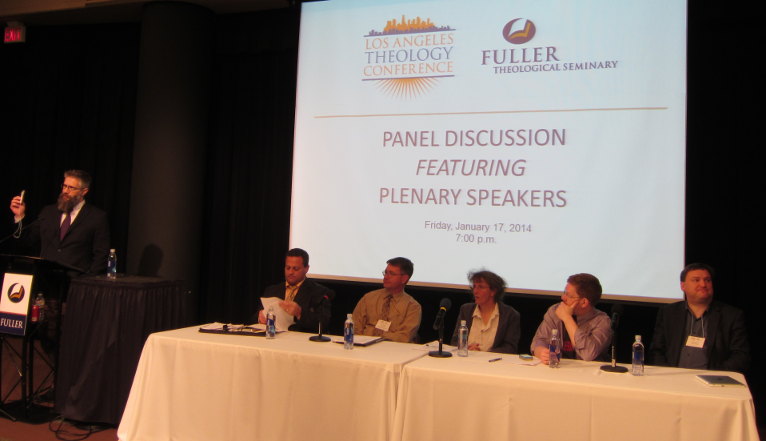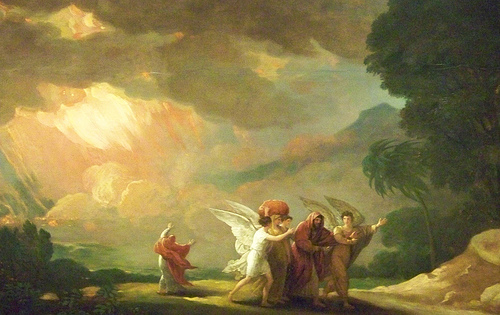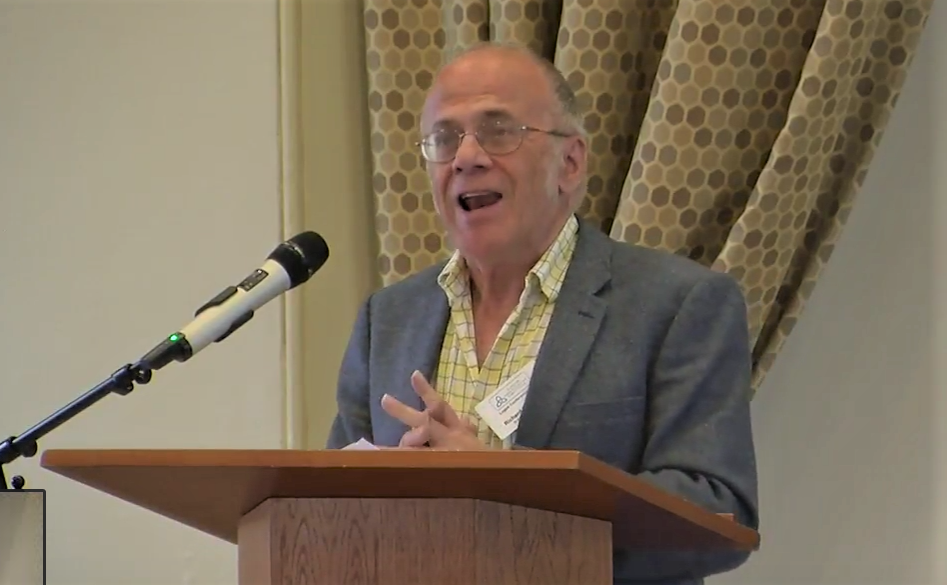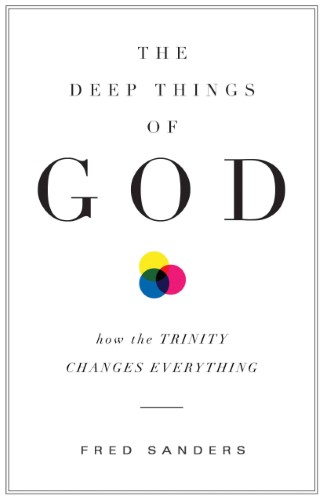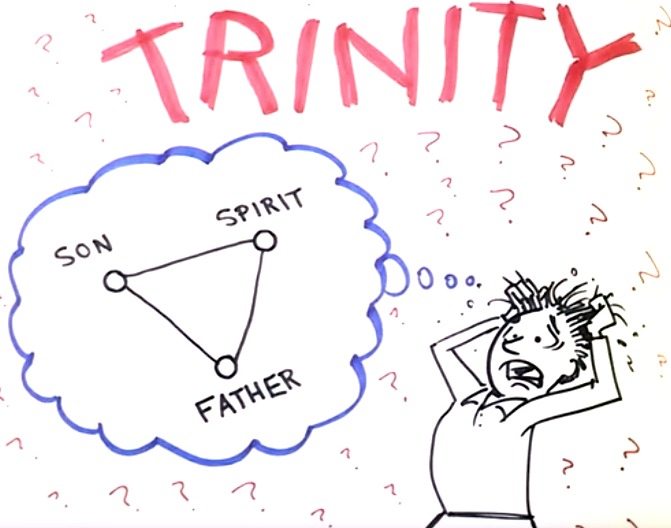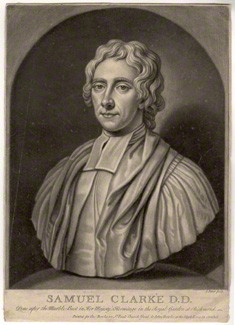Search Results for: Trinity Monotheism
trinities turns 5
We had our first post here or 6 / 19 / 06 – over 350 posts ago! Thus, we are 5. Ready for Kindergarden, evidently! 😉 Many thanks to J.T. Paasch, Scott Williams, and Joseph Jedwab for their excellent posts! And thanks to the many great commenters here; we’ve had some vigorous discussions, and only very rarely have things gotten a bit too “hot.” You folks are awesome. A… Read More »trinities turns 5
How not to conduct theological dialogue
A poor exchange. Read it first – then my comments. Where do I start? The unitarian behaves poorly. Pretending to ask questions, he instead puts forward objections. This is disrespectful. And it makes the compliments at the start seem disingenuous, which is obnoxious. But Bill serves it back, by sarcastically labeling the thing “Muslim objections…” Cute. Are these objections “simple-minded”? No, not really. What they are,… Read More »How not to conduct theological dialogue
podcast 23 – report from the second annual Los Angeles Theology Conference
From left to right: Oliver Crisp’s Beard, Oliver Crisp, Thomas McCall, Fred Sanders, Karen Kilby, Lewis Ayres, and Stephen Holmes. In this episode I share my reflections on this conference, and specifically on Trinity theories in contemporary academic theology. You can also listen to this episode on Stitcher or iTunes (please subscribe, rate, and review us in either or both – directions here). It is also available on YouTube (you can subscribe… Read More »podcast 23 – report from the second annual Los Angeles Theology Conference
William Lane Craig in the Chronicle of Higher Education
Here. On the whole, a well done piece. Craig is indeed a fearsome debater, and a bold and insightful scholar. His devotion to apologetics makes him a bit uncool among professional philosophers. But I would guess that his work is probably read by more average people – Christians, atheists, Muslims, and who-knows-what – than any living philosopher. The reason is that it has many good… Read More »William Lane Craig in the Chronicle of Higher Education
podcast 20 – review of the Lewis-Rogers debate – part 1
In his debate with Muslim apologist Shadid Lewis does Reformed Christian apologist Anthony Rogers establish the consistency of the Trinity and monotheism? That is, does he prove that the Trinity doctrine is not a form of polytheism? Is this episode, we examine his arguments, and discuss the Qur’an, abrogation, and whether it always distinguishes Christians from polytheists Rogers’s argument from Genesis 18-19 that Moses taught… Read More »podcast 20 – review of the Lewis-Rogers debate – part 1
“Sabellianism Reconsidered” Considered – Part 3
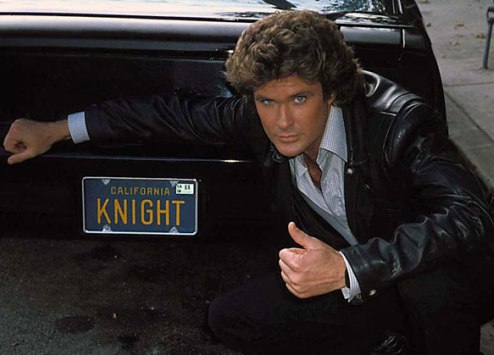
To continue Baber’s attempt to retool Sabellianism:
Suppose your car, named KITT, has temporal parts. KITT, then is the sum of, the whole composed of these parts. (KITT at t1, KITT at t2, KITT at t3, KITT at t4…etc.) Further, Baber urges each of these car-stages (temporal parts of a car) is itself a car. So, e.g., KITT at t3 is just as much a car as the whole KITT. But now, suppose David Hasselhoff is driving KITT on, say, Easter. He’s actually, on this metaphysics, driving two cars, for KITT on Easter is a different car than KITT (the sum of KITT-stages).
Not to worry, argues Baber. We simply need a concept of “tensed identity”. This is not numerical identity as normally understood, but is rather the relation between KITT and KITT at Easter, such that they “count as one”. (p.5) Thus, Baber suggests that if we believe in temporal parts, the thesis of “tensed identity” is a “plausible way to avoid over-population.” (p. 5)
Back to God. She’s exploring the idea that God is a whole composed of three temporal parts Read More »“Sabellianism Reconsidered” Considered – Part 3
Is “Supports” Intelligible?
Building on the substance dualist view that our own individual substance/soul supports one mind (i.e., person), Williams, Craig, and Hasker propose models of the Trinity according to which a single trope of divinity—a divine substance/soul—supports three minds (i.e., persons) in like manner. Craig relies on this claim to flesh out how three persons can be said to compose one being, and Hasker relies on the… Read More »Is “Supports” Intelligible?
podcast 363 – Dr. Andrew Hollingsworth on “mere” social trinitarianism and eternal relations of origin – Part 2
A deep dive on divine attributes, processions, and “social” trinitarianism.
podcast 213 – Has Bauckham clarified his “divine identity” theory? – Part 1
Is the idea of “divine identity” the key to understanding New Testament christology?
podcast 192 – Review of Sanders’s The Deep Things of God – Part 1
“The Gospel is Trinitarian.” What does this mean, and is it both true and non-trivial?
podcast 159 – Aaron Arinder on Ontological Pluralism and the Trinity
Can metaphysics show how trinitarian theology is coherent?
Some clarifications: a reply to McManus – Part 1
What does “monarchical trinitarianism” include exactly?
two new papers published online
At the Journal of Analytic Philosophy, and at the Journal of Biblical Unitarianism. Thanks to the editors of both journals for their good work. The first paper continues the discussion with Hasker of my “Divine Deception” arguments against three-self Trinity theories. I discuss there the monotheism of Isaiah. Then I get into interesting arguments by historical unitarians, such as Nye, Clarke, and Worcester, even comparing… Read More »two new papers published online
Want to contribute?
The trinties blog is looking for regular contributors. Are you up for it? The goal of this blog is to do and to promote analytic theology, in ways which are “accessible” to many. Subjects include Trinity, Incarnation, atonement, divine attributes, monotheism and polytheism, theories of divine providence, arguments for God’s existence, arguments for atheism, competing conceptions of God, Christian vs. other understandings of God, theories… Read More »Want to contribute?
Swinburne’s Social Trinitarian Theory, Part 2 – a key move
![]()
Swinburne isn’t what you’d call a theological liberal. He’s not a conservative evangelical either, given his rejection of things like biblical inerrancy. He was, I believe, a life-long Anglican, until 1996 when he converted to Eastern Orthodoxy. As I understand it, at least part of his motivation was his exasperation with anything-goes style Anglicanism (e.g. priests who are not theists). But my point is that he aims to be a “Catholic” Christian, in the sense of one who holds to mainstream orthodoxy – roughly, that core of doctrines held in common by Catholicism, Eastern Orthodoxy, and (at least in theory) most Protestants. (Actually, he’s probably a good bit more “Catholic” than that – in that he believes in apostolic succession, and in the authority of The Church to decree the meaning of scriptural texts – see his book Revelation.) This requires some dexterity on his part, and creates the burden of crafting a theory that one can claim fits with the “Athanasian” and Constantinopolitan Creeds.
Swinburne argues that it is uncharitable to read the ecumenical councils’ claim that “there is only one god” as asserting that there’s only one divine individual, as that would contradict their committment to there being three divine individuals.Read More »Swinburne’s Social Trinitarian Theory, Part 2 – a key move
podcast 304 – The Absolute Basics of the Christian Faith
A Wesleyan ministry tells new Christians about “The Absolute Basics of the Christian Faith.”
the evolution of my views on the Trinity – part 9
This time, some questions that may occur to you about Clarke’s views on the Trinity.
Kimel and Bauckham on monotheism
I thank Fr. Aiden Kimel for reminding me of Richard Bauckham’s chapter on kinds of monotheism. I read it years ago, and thought there was something that was not quite right about it. Kimel says, summarizing Bauckham, Inclusive monotheism declares the God is the highest being within the class of deities to which he belongs. “He is unique,” Bauckham explains, “only in the sense of… Read More »Kimel and Bauckham on monotheism
The Latin Trinity Chart 3 – Henry of Ghent to the rescue
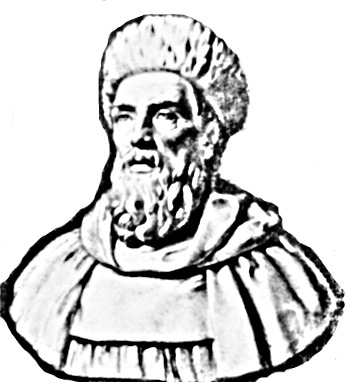
“Stand aside, puny moderns. Or postmoderns. Or whatever you are.”
I thought that Scott and Joseph made some really penetrating comments on the first two posts in this series. Here I want to recap them, so we can discuss how Henry of Ghent (c. 1217-93) a.k.a. The Solemn Doctor would interpret our chart (see the first two posts), specifically, the second, modalistic interpretation I offered.
First, Joseph comes in with some weighty objections to that model (summarized and expanded by me from his comments).Read More »The Latin Trinity Chart 3 – Henry of Ghent to the rescue



